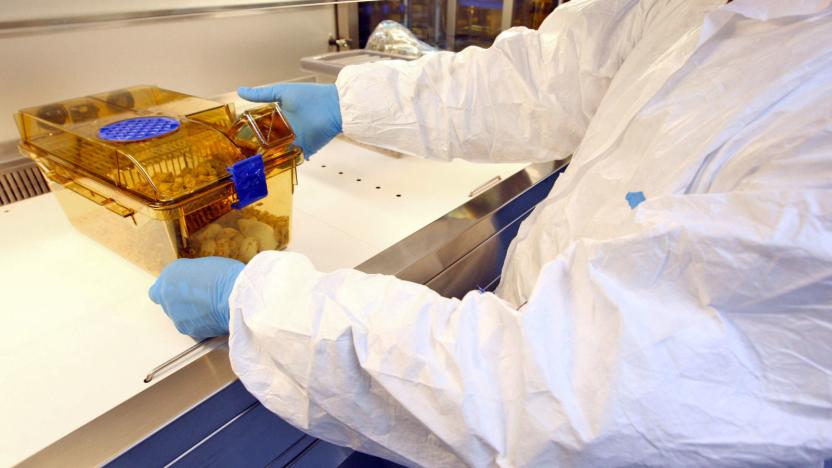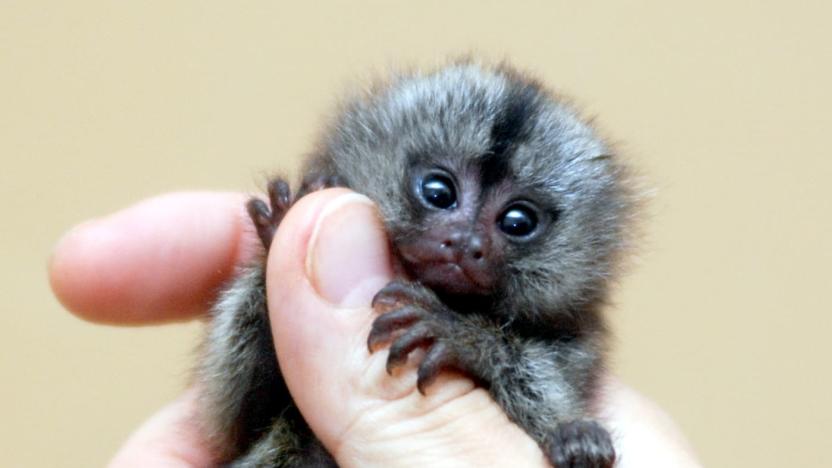GeneticallyModified
Latest

FDA removes restrictions on genetically modified salmon
Genetically modified fish are about to become more of a practical reality in the US. The Food and Drug Administration has lifted an import alert on AquaBounty's genetically modified AquAdvantage salmon eggs, allowing the fish to reach the US over three years after they received initial approval. Congress told the FDA in 2016 to block modified salmon until it issued labeling guidelines, and the Administration believes Congress' newly-enacted National Bioengineered Food Disclosure Standard meets that criteria.

Chinese scientist claims he edited babies' genes with CRISPR
A Chinese scientist claims to have created the world's first genetically-edited babies using the CRISPR/Cas9 tool. He Jiankui (pictured) told the Associated Press that twin girls, Lulu and Nana, were born earlier this month following embryo-editing using CRISPR to disable the CCR5 gene, which allows the HIV virus to infect cells. An American scientist, Michael Deem, also reportedly assisted He on the project at the Southern University of Science and Technology of China.

First FDA-approved genetic therapy fights leukemia
The first gene therapy treatment has been approved for use in the United States. The FDA greenlit a procedure that uses a patient's own cells to combat a particular type of leukemia, but will only permit it for children and young adults up to age 25.

Artificial skin transplants could be used to treat diabetes
Skin grafts made using CRISPR gene editing are preventing mice from developing diabetes, and scientists claim they could prove beneficial for humans too. In a proof-of-concept study, researchers at the University of Chicago edited stem cells from newborn mice to controllably release glucagon-like peptide 1 (GLP-1). This is the hormone that stimulates the pancreas to produce insulin while maintaining healthy levels of blood glucose. The genetically modified skin grafts were then given to mice that were fed high-fat diets to induce obesity. These mice saw a reverse in insulin resistance and gained around half as much weight as those not given the grafts.

Researchers have engineered monkeys with Parkinson's disease
Scientists in Japan have successfully bred a set of genetically modified marmosets with Parkinson's disease, Alzheimer's disease and motor neurone (Lou Gehrig's) disease, The New Scientist reports today. The development could lead to major breakthroughs in the treatment of neurological disorders.

Genetically modified mongrel takes drugs, glows in the dark
Labradoodles, Cockapoos and Puggles better make way, there's a new designer breed lighting up the pound -- blacklight-style. Using the same somatic cell transfer technique that birthed the first puppy clone, Korean researchers at Seoul National University created Tegon, a glow-in-the-dark female beagle. The four years in the making, 3.2 billion won ($3 million) genetically modified pup fluoresces when exposed to UV light after ingesting a doxycycline antibiotic. No doubt this Frankenweenie should have Uptown girls and Party kids scrambling for a bank loan, but a high-end canine accessory end is not what the team had in mind. Citing the 268 diseases mutt and man share, lead scientist Lee Byeong-chun believes future lab-made pooches could include "genes that trigger fatal human diseases," paving the way for life-saving treatments. If any of this is ringing your PETA alarm, we don't blame you. We'd much rather see this lambent hooch take the starring role in Tim Burton's next, great reboot. [Image credit via Reuters]

Scientists create mutant bugs that produce crude oil, unleash swarm of merciless killers
Like the beginning of every great science fiction movie, experts claim that they've discovered a cure for our fuel-dependency woes that only requires an army of genetically modified bacteria... that eat wheat straw and excrete crude oil. You read that right: scientists have created bugs which are able to snack on woodchips or sugar cane and produce waste in the form of easily malleable oil. Not only are the buggers capable of creating a byproduct which can quickly be refined into fuel for vehicles, but scientists say the process is carbon-negative -- it outputs less carbon than is required to produce it. Director of the project -- dubbed LS9 -- Greg Pal says that barrel prices could run as low as $50, and that the company plans to have a commercial facility producing the crude in 2011. And as for the potential threat of world-destroying attack from the mutant feeders? Says Pal, "We're putting these bacteria in a very isolated container: their entire universe is in that tank. When we're done with them, they're destroyed." Sure buddy -- but we're going to re-watch Them! just in case.



